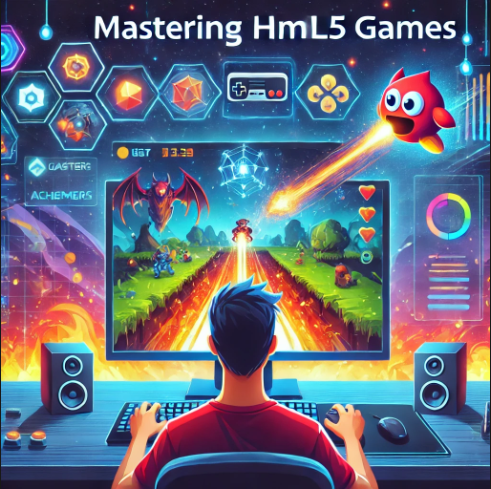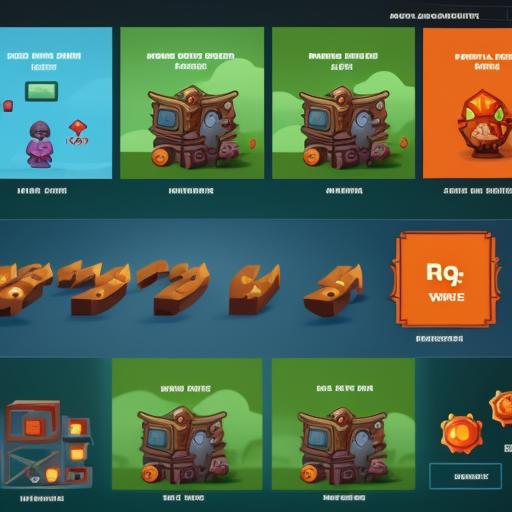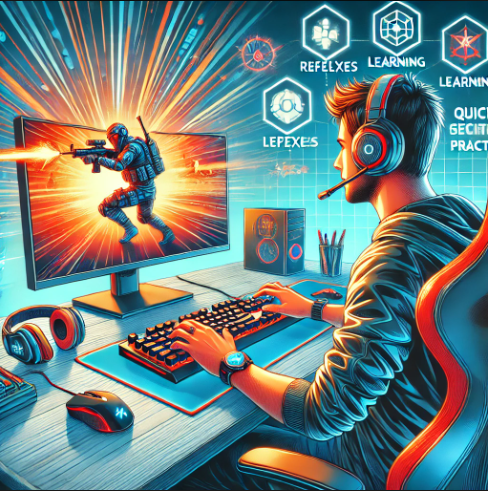
Online gaming has come a long way in recent years, with players now having access to an incredibly diverse range of games right at their fingertips. While mobile apps and console games dominate much of the industry, HTML5 games are rapidly becoming a favorite among gamers and developers alike. But what makes HTML5 games so special, and why do they hold such promise for the future of online gaming? Let’s explore how this technology is shaping the gaming world and why it’s here to stay.
1. Easy Accessibility and No Downloads Required
One of the biggest advantages of HTML5 games is their accessibility. Unlike traditional video games, which often require hefty downloads, installations, or specific software, HTML5 games can be played directly in your web browser. This means that no matter where you are, as long as you have an internet connection, you can jump into a game. There’s no need to wait for long installation times or deal with system compatibility issues.
This ease of access is particularly important in today’s fast-paced world, where players prefer to pick up a game on the go, whether on their mobile phones, tablets, or desktop computers. With HTML5, you’re not tied down to a specific device or location, making gaming more accessible than ever.
2. Cross-Platform Compatibility
HTML5 games are designed to work across a variety of platforms without the need for additional modifications. Whether you’re playing on a desktop, tablet, or smartphone, the game will look and function the same. This cross-platform compatibility is a huge selling point for both players and developers.
Developers can create a single game version that works seamlessly across multiple devices, saving time and resources. Players, on the other hand, can continue playing their favorite games regardless of the device they’re using, providing a consistent and enjoyable experience. This flexibility makes HTML5 games an attractive option for the future of gaming, as they meet the needs of both casual and hardcore gamers.
3. Faster Development and Cost Efficiency
Developing games for multiple platforms traditionally required creating separate versions for each device or operating system, often making the process time-consuming and expensive. HTML5 changes the game by allowing developers to create a single version that works everywhere. This reduces development time and costs, enabling developers to create more games at a faster pace.
For smaller indie developers, this is especially important as it allows them to compete in the gaming market without the need for large budgets or resources. As HTML5 technology continues to improve, the ability to develop high-quality games efficiently will only increase, leading to a more diverse and innovative gaming ecosystem.
4. Enhanced Performance and Graphics
While HTML5 games were initially seen as simple or casual, modern advancements in technology have made it possible to create visually stunning and performance-intensive games directly in the browser. HTML5’s capabilities now support 2D and 3D graphics, complex animations, and physics engines that were once only achievable in console or downloadable games.
Thanks to libraries and frameworks such as Phaser and Three.js, developers can create games with rich, immersive graphics that perform well on most devices. This improvement in graphics and performance means that HTML5 games are no longer limited to simple experiences—they can now offer the depth and complexity that players expect from modern gaming.
5. Instant Updates and Easy Patches
Another key advantage of HTML5 games is the ease with which updates and patches can be rolled out. Since the games are hosted online, developers can make updates in real-time, ensuring that players always have access to the latest content and improvements. This also means bug fixes can be applied instantly, ensuring a smoother and more stable gaming experience.
In contrast, traditional downloadable games often require players to manually update or download patches, which can be time-consuming. With HTML5 games, updates happen automatically, allowing players to enjoy a seamless experience without interruption.
6. Social Integration and Multiplayer Features
HTML5 games are also paving the way for more integrated social experiences. With built-in support for social media platforms and multiplayer functionality, players can easily share their achievements, challenge friends, and compete against others in real-time. Many HTML5 games now include features such as leaderboards, multiplayer modes, and social sharing options, further enhancing the social aspect of gaming.
This increased social integration is key to the future of online gaming, as it builds a sense of community and makes games more interactive and engaging. Gamers no longer have to play in isolation—they can connect, compete, and collaborate with others, creating a more dynamic and enjoyable experience.
7. Support for Virtual and Augmented Reality
The future of gaming is increasingly leaning toward virtual reality (VR) and augmented reality (AR), and HTML5 is already on the cutting edge of these technologies. Using frameworks like WebVR and WebXR, developers are beginning to build VR and AR experiences that can be accessed directly through browsers without the need for additional software or hardware.
As VR and AR continue to evolve, HTML5 is poised to play a major role in bringing these immersive experiences to a wider audience. With the accessibility and ease of HTML5, the next generation of virtual and augmented reality games will be available to more players than ever before.
8. Low Barrier to Entry for Developers
Unlike other gaming platforms that require expensive development kits or complex programming languages, HTML5 offers a low barrier to entry for game developers. This makes it easier for new developers to create and publish their games, fostering innovation and diversity in the gaming market.
With free tools and open-source frameworks available, budding game developers can easily create and share their work with a global audience. This democratization of game development is essential for the continued growth and evolution of the gaming industry.
Conclusion: The Future of Gaming Is Bright with HTML5
HTML5 games are already proving to be a game-changer in the world of online gaming, offering players the ability to play anytime, anywhere, on any device. With its accessibility, cross-platform compatibility, faster development cycles, and enhanced performance, HTML5 is clearly the future of online gaming. As technology continues to evolve, HTML5 games will only become more sophisticated, immersive, and engaging, solidifying their place as a dominant force in the gaming world.
Whether you’re a casual gamer or a hardcore enthusiast, HTML5 games offer something for everyone. As developers continue to innovate and push the boundaries of what’s possible with this technology, we can expect to see even more exciting and cutting-edge gaming experiences in the years to come.



